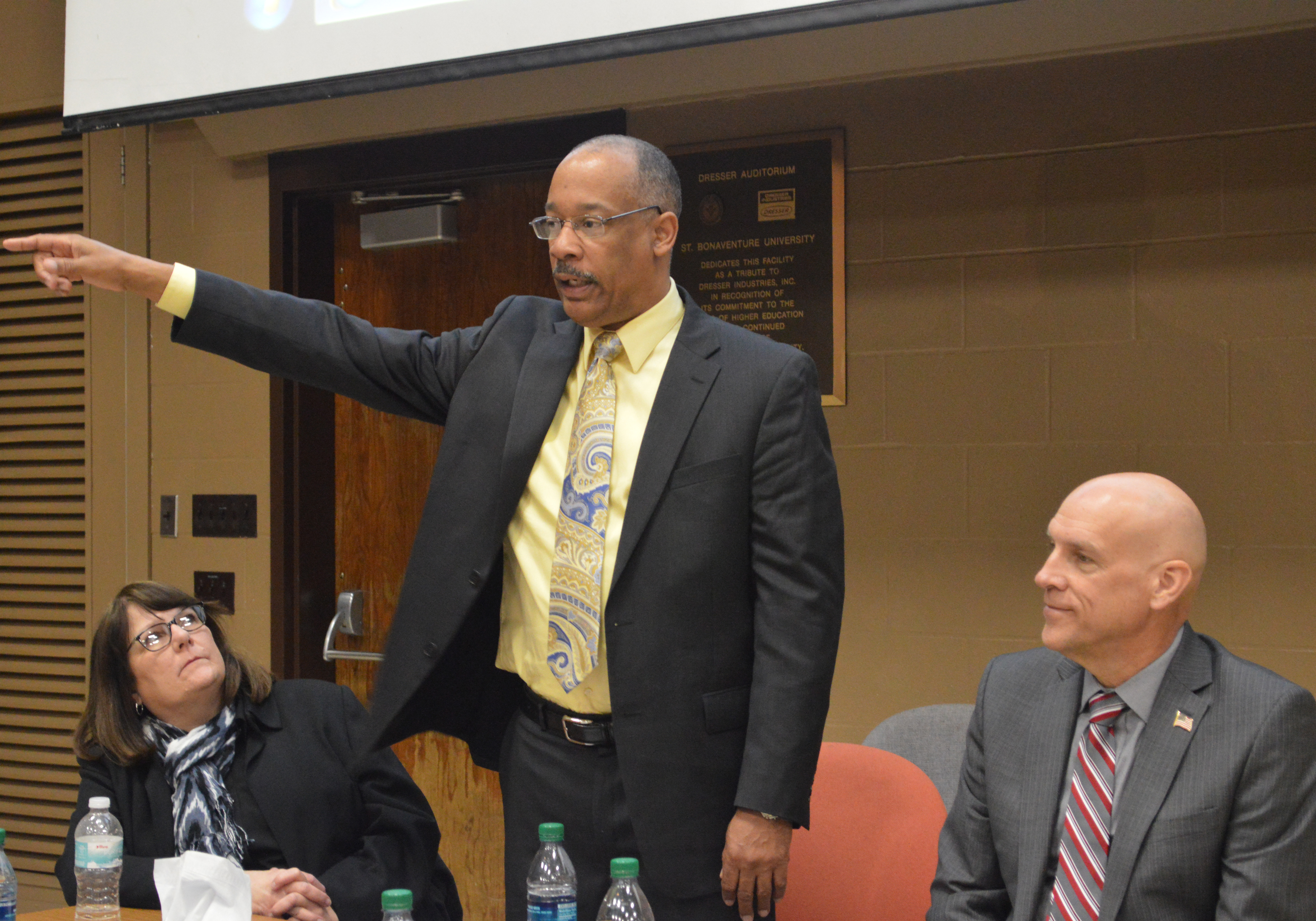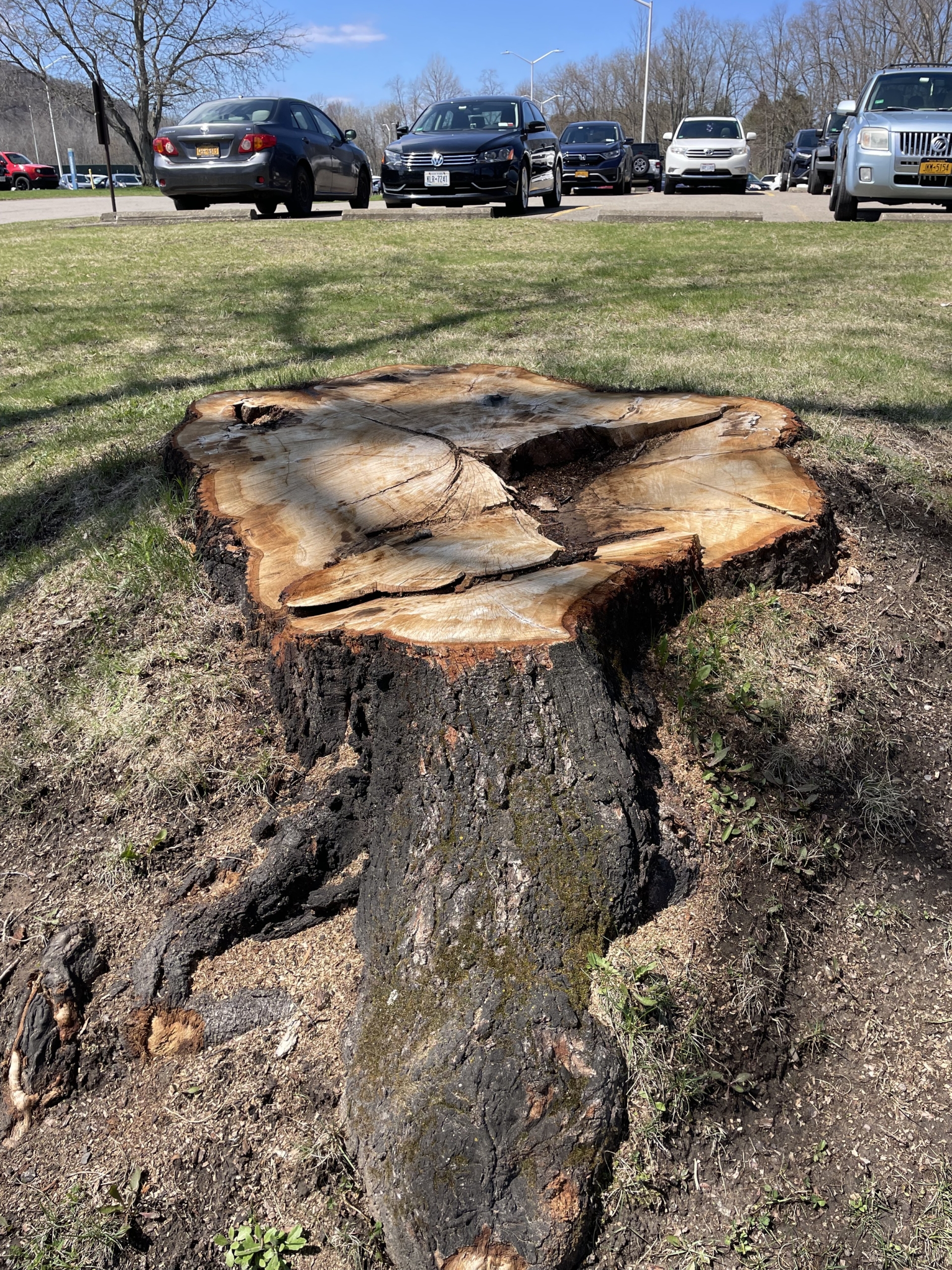By Joe Ferencik
Contributing Writer
On Wednesday, two Western New York lawyers spoke at the third and final installment of SBU’s #RaceMatters series.
The #RaceMatters series addressed racial issues through a series of events and speakers throughout the fall semester.
First to speak was the public defender for Cattaraugus County, Mark Williams Esq. Williams, who spoke about local criminal cases and the disparity of those charged and their race.
“When we have drug cases, we have an unbelievably disproportionate number for clients of color,” said Williams.
He also questioned why there weren’t more arrests made in Ellicottville where there are also drugs being used and circulated.
“Blacks make up about four percent of Cattaraugus County, but if you look at drug defendants, they make up about 40 percent to 50 percent of them,” Williams said.
These statistics were reiterated by John Elmore Esq., who practices in Buffalo, but grew up in South Olean. Elmore worked as a New York State Trooper and then started his career in law.
Trained to try capital punishment cases, Elmore shared a personal story about his sister’s friend, an African American man, who was put on death row for 27 years in Oklahoma City. The man killed another man in self-defense after “the school system failed him, foster system failed him and he was just trying to make a buck,” he said.
This was before Terry Nichols, the white accomplice of Timothy McVeigh, was sentenced to life without parole. McVeigh, a white man who killed 168 Americans in 1995, was executed in 2001.
Elmore shared more stats and personal stories.
While he was working the Manhattan DA’s office Elmore noticed a trend when it came to race, he said.
“In New York City people of color, African Americans and Latino, made up 80 percent of stops,” said Elmore.
Both Williams and Elmore agreed the justice system in America is unjust, and in their respective cases both lawyers have to deal with prejudice and systematic racism, they said.
“As a lawyer, every day you are not practicing competently if you don’t understand the system isn’t fair, because you will take certain steps to help your clients if you understand that,” said Elmore.
ferencje12@bonaventure.edu




